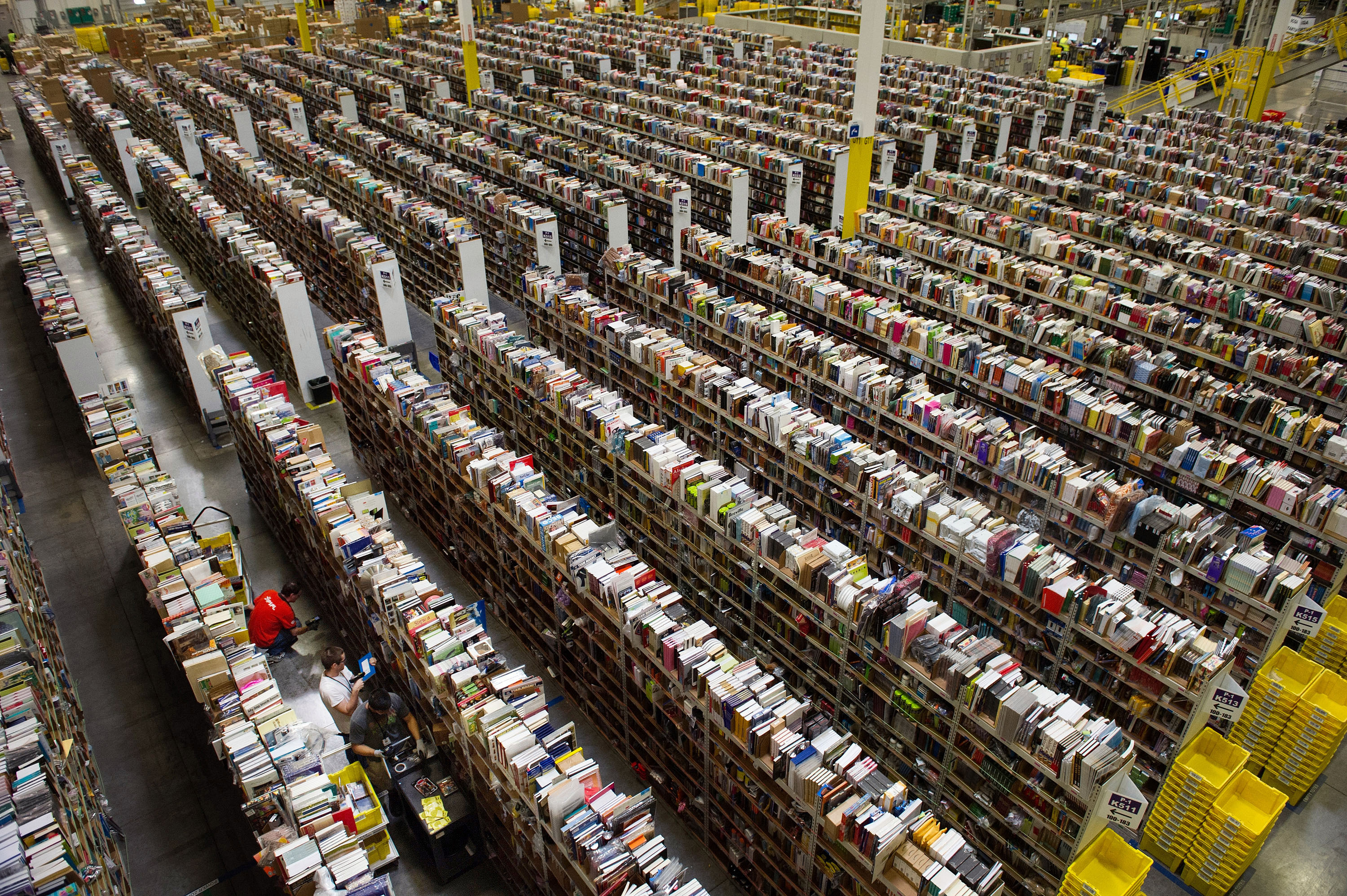Many of the new corporations of the Information Age have been ostensibly good for consumers, with costs neatly hidden. For instance: Google and Facebook are completely free products, until you consider that you are the product. Amazon’s deep discounts have put all manner of cheap goods in consumers’ hands, great tools like books and tablets and smartphones, but competitors and producers have felt an increasing pinch. Eventually the earth is scorched and prices are largely in the hands of one company and the pipeline seriously shortened. Do the benefits outweigh the costs or vice versa?
In a New Republic article, Franklin Foer makes a convincing case that Amazon is already a clear monopoly, which has brought a virtual Walmartization to America. Those cheap items–Sam Walton’s or Jeff Bezos’–come at a dear price, he argues, favoring the purchaser in the short run but obliterating competitors and suppliers all the while. (And that doesn’t even begin to mention the treatment of workers who are made small so that prices can be likewise tiny.) An excerpt in which Foer looks at the disconnect between Industrial Age laws which govern monopolies and the megacorporations of the Information Age:
“Shopping on Amazon has so ingrained itself in modern American life that it has become something close to our unthinking habit, and the company has achieved a level of dominance that merits the application of a very old label: monopoly.
That term doesn’t get tossed around much these days, but it should. Amazon is the shining representative of a new golden age of monopoly that also includes Google and Walmart. Unlike U.S. Steel, the new behemoths don’t use their barely challenged power to hike up prices. They are, in fact, self-styled servants of the consumer and have ushered in an era of low prices for everything from flat-screen TVs to paper napkins to smart phones.
In other words, we’re all enjoying the benefits of these corporations far too much to think hard about distant dangers. Besides, the ideology of Silicon Valley suggests that we have nothing much to fear: If these firms no longer engineer breathtaking technologies, they will be creatively destroyed. That’s why Peter Thiel, the creator of PayPal, has argued that the term ‘monopoly’ should be stripped of its negative connotation. A monopoly, he argues, is really nothing more than a synonym for a highly successful company. Insulation from the brutish spirit of competition even makes them superior organizations—more beneficent employers, better able to both daydream and think clearly. In Thiel’s phrasing: ‘Creative monopolies aren’t just good for the rest of society; they’re powerful engines for making it better.’
Thiel makes an important point: The Internet-age monopolies are a different species; they flummox our conventional ways of thinking about corporate concentration and have proved especially elusive to those who ponder questions of antitrust, the discipline of law that aims to curb threats to the competitive marketplace. Part of the issue is the laws themselves, which were conceived to manage an industrial economy—and have, over time, evolved to focus on a specific set of narrow questions that have little to do with the core problem at hand.”
Tags: Franklin Foer

